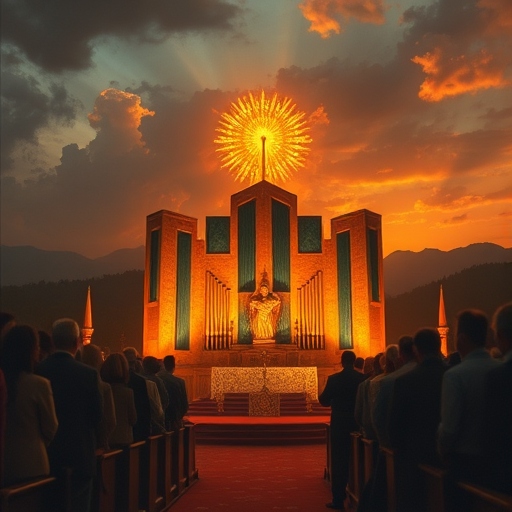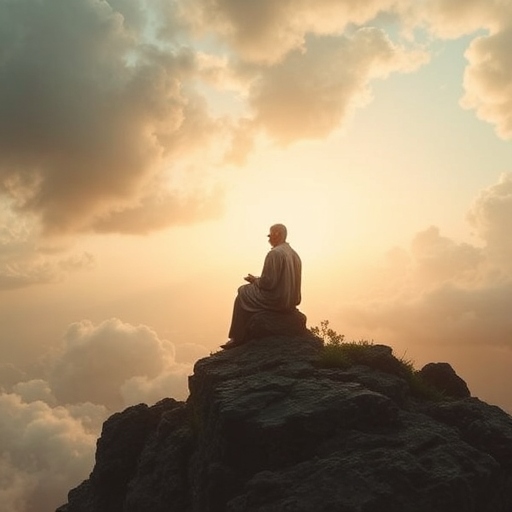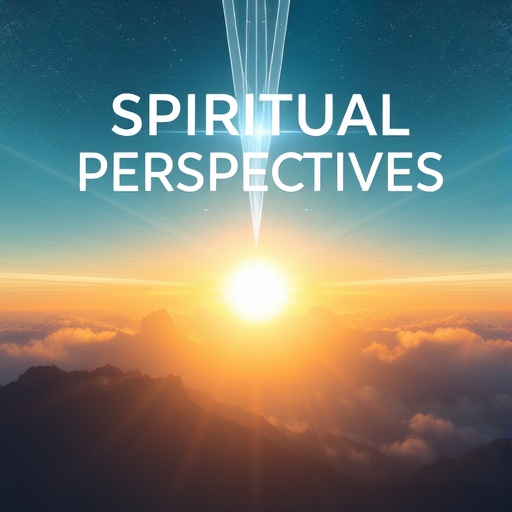The question of whether there is life after death has intrigued humanity for millennia. Across cultures, religions, and philosophical schools of thought, people have pondered what happens to the soul or consciousness after our bodies cease to function. From ancient beliefs about the afterlife to modern-day scientific investigations, this question touches on some of the deepest mysteries of human existence.
In this post, we will explore different perspectives on life after death, drawing on science, philosophy, and spirituality. While no definitive answer may be available, the exploration of these perspectives offers profound insights into the nature of life, consciousness, and the human experience.
1. The Religious Perspective: Afterlife Across Different Beliefs

Religions around the world have long held beliefs about life after death, offering comforting visions of an afterlife or reincarnation, where the soul lives on in some form. These perspectives often shape our actions, ethics, and worldview, with the promise of something beyond our physical lives.
Christianity
In Christianity, the afterlife is a central concept. Christians believe in an eternal existence, either in Heaven or Hell, following the judgment of God. The Christian doctrine of resurrection teaches that after death, believers will be resurrected and reunited with God in Heaven, while those who reject salvation face eternal separation from God in Hell.
Christianity’s concept of eternal life is based on the belief in Jesus Christ's resurrection, symbolizing victory over death. This belief is seen as a path to salvation and hope for an afterlife free from suffering and pain.
Hinduism and Buddhism
Hinduism and Buddhism share the idea of reincarnation. In these traditions, the soul is not bound to a single lifetime but undergoes cycles of birth, death, and rebirth. This process is governed by the laws of karma, which determine the circumstances of future lives based on actions performed in previous ones.
Hinduism believes in moksha, a state of liberation from the cycle of reincarnation, where the soul is united with Brahman, the ultimate reality. Buddhism teaches that the end of suffering, or Nirvana, is the ultimate goal, achieved when the cycle of samsara (the cycle of birth and rebirth) is broken.
Islam
In Islam, there is a clear belief in an afterlife. Muslims believe in the Day of Judgment when individuals will be resurrected and judged based on their deeds. Those who have lived righteous lives and followed the teachings of the Prophet Muhammad are rewarded with eternal life in Paradise, while those who have led sinful lives face punishment in Hell.
Islamic teachings emphasize the importance of good deeds, charity, and devotion to God (Allah) as the path to salvation and entry into Paradise.
Ancient Beliefs: Egypt and Greece
Ancient civilizations, such as the Egyptians and Greeks, also had strong beliefs about the afterlife. The ancient Egyptians believed in a complex afterlife, where the soul journeyed through trials and judgment to reach the afterlife. They believed that the heart was weighed against the feather of Ma’at, the goddess of truth and justice, determining the fate of the soul.
Similarly, the ancient Greeks, particularly those who followed the teachings of Plato, believed in an immortal soul that continued to exist after the body’s death. For many Greeks, the afterlife was seen as a shadowy existence in the underworld, but others, like the philosophers of the time, believed in a higher realm for those who achieved wisdom and virtue.
2. The Scientific Perspective: Does Consciousness Survive Death?

In contrast to religious views, the scientific perspective tends to focus on what can be observed and measured, which has led to a more skeptical stance on the existence of life after death. According to most scientists, the physical body ceases to function after death, and consciousness is tied to the brain, which ceases to work when the body dies.
The Role of the Brain and Consciousness
Modern neuroscience suggests that consciousness is an emergent property of the brain. When the brain ceases to function—such as during clinical death—the experience of consciousness ends. This perspective aligns with a materialistic worldview, where consciousness is seen as a product of neural activity in the brain.
However, this viewpoint has been challenged by anecdotal accounts and phenomena that suggest consciousness may persist beyond death, such as near-death experiences (NDEs), which we will explore further below.
Near-Death Experiences (NDEs)
One of the most compelling arguments for life after death comes from individuals who have experienced near-death experiences (NDEs). NDEs often involve vivid, transformative experiences during moments of clinical death or extreme medical distress. Common elements of NDEs include feelings of floating outside the body, moving through a tunnel of light, encountering deceased loved ones, or experiencing profound peace.
Though many scientists argue that NDEs can be explained by biological processes—such as the brain’s response to oxygen deprivation—some researchers contend that these experiences point to the possibility of consciousness existing outside the body. The scientific community remains divided on the interpretation of NDEs, with no definitive explanation to date.
Quantum Consciousness Theory
Some researchers have proposed that quantum mechanics could offer an explanation for consciousness that transcends the brain’s physical processes. The theory of quantum consciousness, championed by physicist Roger Penrose and anesthesiologist Stuart Hameroff, suggests that consciousness arises from quantum processes within the brain’s microtubules, which might be capable of surviving physical death.
This theory remains highly speculative and controversial, but it introduces the possibility that consciousness could persist beyond the body, potentially offering a scientific explanation for life after death.
3. Philosophical Views on Life After Death

Philosophers have long debated the nature of existence and consciousness, offering a variety of perspectives on whether life continues after death. Some view death as the definitive end of consciousness, while others consider the possibility of immortality or the continuation of the soul in a different form.
Dualism: The Mind-Body Split
One of the most famous philosophical arguments for life after death comes from René Descartes, who proposed the idea of dualism—the belief that the mind (or soul) and the body are distinct entities. According to Descartes, the mind is immaterial and can exist independently of the body, suggesting the possibility of life after death, even if the physical body ceases to exist.
Dualism is still a widely discussed topic in philosophy, with proponents arguing that if the mind is separate from the body, it could potentially survive death. Critics of dualism, however, argue that there is no evidence for the mind’s existence apart from the body.
Materialism: The End of Consciousness
On the other hand, materialists argue that consciousness is entirely dependent on the brain and its physical processes. Once the brain ceases to function, so too does consciousness. From this perspective, death marks the end of individual existence, and there is no continuation of the self beyond physical death.
Materialism aligns with the scientific understanding of the world and emphasizes the importance of living a meaningful life in the here and now, rather than focusing on an afterlife.
The Immortality of the Soul
Other philosophical perspectives, particularly those influenced by the writings of Plato, Aristotle, and various religious thinkers, posit that the soul is immortal and transcends physical death. This view suggests that life after death is not only possible but inevitable, with the soul continuing on a journey beyond the material world.
Plato, for instance, argued that the soul is eternal and undergoes cycles of birth, death, and rebirth until it achieves ultimate enlightenment and reunites with the divine.
4. Spiritual Perspectives: The Continuation of the Soul

Many spiritual traditions, including New Age beliefs, spiritism, and practices like mediumship, also offer perspectives on life after death. These views often hold that the soul or spirit continues to exist after death in a different realm or dimension, where it may undergo further spiritual development or join with a higher consciousness.
Spiritism
Spiritism, a religious and philosophical movement founded in the 19th century by Allan Kardec, teaches that the soul survives physical death and continues its evolution in the spiritual realm. According to Spiritism, the soul can communicate with the living through mediums, offering proof of life after death. This perspective suggests that life after death is not only possible but actively involved in the spiritual growth of the individual.
Reincarnation
Reincarnation, as taught in Hinduism, Buddhism, and various New Age philosophies, posits that the soul is reborn into new bodies over and over again, each time with the opportunity to learn, grow, and transcend past mistakes. In this view, death is not the end, but rather a transition into another phase of existence.
Conclusion: The Mystery Remains
The question of whether there is life after death remains one of humanity’s greatest mysteries. While religious and spiritual beliefs offer hopeful visions of an afterlife, the scientific community tends to view death as the end of individual consciousness. Philosophers continue to debate whether the mind is separate from the body, with some arguing for the immortality of the soul, while others view consciousness as a product of physical processes.
Whether through religious faith, scientific inquiry, or philosophical speculation, the idea of life after death taps into deep human desires for meaning, continuity, and hope. While we may never have definitive answers, the exploration of this question continues to inspire reflection, conversation, and a deeper understanding of our existence and what might lie beyond it.

You must be logged in to post a comment.